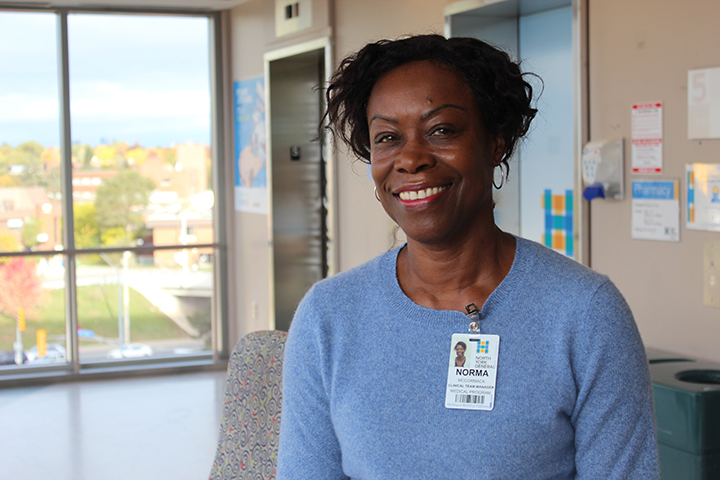Nursing Week 2023: NYGH’s Sickle Cell Working Group

It’s a debilitating disease accompanied by episodes of severe pain, primarily affecting Black and racialized people from Africa, the Caribbean Mediterranean, the Middle East, South America, and South Asia. In Ontario, an estimated 3,500 people are living with Sickle Cell Disease (SCD), and receiving the right care can be a barrier for many.
“We know from literature and personal experience with patients and families, people with SCD often express feelings of frustration and mistrust in their care providers because many feel stigmatized, or labeled as ‘drug seekers,’ As a result, this can negatively impact their care trajectory and lead to poor health outcomes,” says Norma McCormack, Clinical Team Manager, Medicine and Eldercare, and a Sickle Cell Advocate at North York General Hospital (NYGH).
Norma is part of NYGH’s Sickle Cell Working Group which aims to increase awareness and training for Sickle Cell Disease and improve care and outcomes for Sickle Cell patients while removing barriers that have long been associated with the disease. The advocacy group is made up of NYGH nurses, physicians and other members of the health care team who are working to bridge the gap and offer the best treatments for those living with the disease in our communities.
“We’re also there to act as patient advocates, listening, understanding and working with the interprofessional team to help with treatment optimization, care planning, and ensuring education and community supports are in place,” says Norma.
Providing customized care is an important component of helping patients manage the disease without feeling judged or misunderstood. It’s also a source of pride for the health care team when patients share positive experiences about the compassionate and supportive care provided during treatment and after discharge.
“As someone who feels strongly about meeting the needs of our sickle cell patients, it is incredibly rewarding when we build trust between patients and care providers, which is critical to preventing readmissions to our Emergency Department,” says Doreen Alexander, who is also part of the Working Group.
“Through our advocacy work, patients and their loved ones have expressed how grateful they are to see that NYGH has implemented a dedicated group of professionals who are helping them navigate the system and community supports more seamlessly,” adds Norma.
